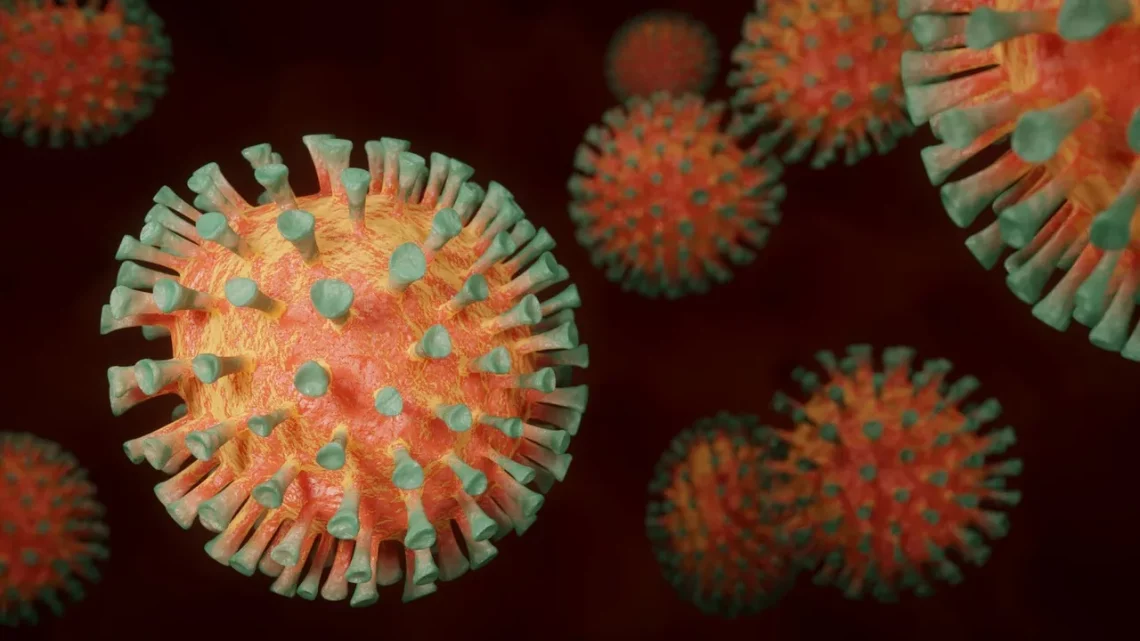
Understanding the Impact of the Dog Virus on Canine Health Today
Canine health is a topic that resonates with dog owners worldwide. As beloved companions, dogs are not only pets but also integral members of many families. Understanding their health and well-being is crucial for ensuring a happy and fulfilling life for our furry friends. Among the various health concerns that can affect dogs, viruses pose a significant threat. These microscopic agents can lead to severe illnesses that may compromise a dog’s quality of life and longevity. Given the increasing prevalence of certain canine viruses, it is important for dog owners to stay informed about these issues to protect their pets.
In recent years, the awareness of canine viral infections has grown, leading to better preventive measures and treatments. However, misinformation still exists, and many dog owners may not fully understand the implications of these viruses. This lack of knowledge can result in inadequate care or failure to recognize early signs of illness. Therefore, understanding the nature of these viruses, their modes of transmission, symptoms, and preventive care is essential for every dog owner.
With this foundation, we can explore the complexities surrounding canine viruses and their impact on dog health today. By doing so, we can foster a more informed and proactive approach to canine care, ultimately enhancing the lives of our beloved pets.
Common Canine Viruses and Their Effects
Canine health is often threatened by various viruses, each with its own characteristics and potential consequences. Among the most prevalent are Canine Parvovirus, Canine Distemper Virus, and Canine Infectious Hepatitis. Understanding these viruses is essential for dog owners to make informed decisions regarding their pets’ health.
Canine Parvovirus is notorious for its ability to spread rapidly among unvaccinated dogs. It primarily affects puppies but can also impact adult dogs. The virus attacks the gastrointestinal tract, leading to severe vomiting, diarrhea, and dehydration. Puppies are especially vulnerable due to their immature immune systems, making vaccination critical at an early age. The disease can be fatal if not treated promptly, which underscores the importance of recognizing early symptoms.
Canine Distemper Virus, on the other hand, is a highly contagious disease that affects a dog’s respiratory, gastrointestinal, and central nervous systems. It is often accompanied by symptoms such as coughing, fever, and neurological issues. The virus spreads through respiratory secretions and can be especially devastating in unvaccinated populations. Vaccination remains the most effective preventive measure, and awareness of the disease’s symptoms is crucial for early detection.
Canine Infectious Hepatitis affects the liver and can lead to serious complications, including liver failure. This virus can spread through contact with infected urine, saliva, or feces. Symptoms may vary from mild to severe, including fever, abdominal pain, and jaundice. Again, vaccination plays a vital role in preventing the spread of this virus, and dog owners should ensure their pets are up to date on their vaccinations.
By understanding these common canine viruses and their effects, dog owners can better protect their pets from potential health risks. Vaccination, awareness of symptoms, and prompt veterinary care are essential components of managing canine health in the face of viral threats.
Transmission and Preventive Measures
Understanding how canine viruses are transmitted is crucial for preventing outbreaks and keeping dogs healthy. Most viruses spread through direct contact with infected animals or contaminated environments. Canine Parvovirus, for example, can survive on surfaces for months, making it easy for dogs to contract the virus even in seemingly clean environments.
Dogs can also contract viruses through contact with infected bodily fluids, such as saliva, urine, or feces. This underscores the importance of socializing dogs in controlled environments, especially during their early developmental stages. Dog parks, pet boarding facilities, and grooming salons can be potential hotspots for viral transmission. Therefore, it’s essential for dog owners to ensure their pets are vaccinated before exposing them to such environments.
Preventive measures play a crucial role in safeguarding canine health. Vaccination is the most effective way to protect dogs from serious viral infections. A comprehensive vaccination schedule should begin at puppyhood and continue into adulthood. Regular veterinary check-ups can ensure that vaccinations remain current and that dogs are not exhibiting any early signs of illness.
In addition to vaccination, maintaining a clean environment is vital. Regularly disinfecting common areas and keeping a close eye on dog interactions can help mitigate the risk of virus transmission. Dog owners should also educate themselves about the signs of illness, enabling them to seek veterinary care promptly if they suspect their pet may be infected.
By understanding transmission routes and implementing preventive measures, dog owners can significantly reduce the risk of their pets contracting dangerous viruses, contributing to a healthier canine population.
Symptoms and Diagnosis of Canine Viruses
Recognizing the symptoms of viral infections in dogs is crucial for timely diagnosis and treatment. Symptoms can vary widely depending on the virus but often include similar signs such as lethargy, vomiting, diarrhea, and loss of appetite. Understanding these symptoms can empower dog owners to take swift action when needed.
For instance, if a dog exhibits signs of severe vomiting or diarrhea, particularly if it is accompanied by lethargy, it may indicate an infection like Canine Parvovirus. In such cases, immediate veterinary attention is essential. Additionally, respiratory symptoms, such as coughing and nasal discharge, may signal Canine Distemper Virus or other respiratory infections, necessitating a prompt visit to the veterinarian.
Veterinarians often use a combination of physical examinations, medical history, and laboratory tests to diagnose viral infections. Blood tests, fecal tests, and sometimes imaging studies may be employed to confirm the presence of a virus. Early diagnosis is crucial, as it allows for more effective treatment options and better outcomes for affected dogs.
In addition to clinical symptoms, dog owners should be aware of any recent exposure to other dogs or environments known to harbor viruses. Providing this information to the veterinarian can aid in accurate diagnosis.
Ultimately, being vigilant about a dog’s health and recognizing symptoms of illness can significantly influence the effectiveness of treatment and the overall prognosis for recovery.
The Role of Vaccination in Canine Health
Vaccination is a cornerstone of preventive care in canine health, significantly reducing the incidence of serious viral diseases. By stimulating the dog’s immune system, vaccines prepare the body to fight off specific infections, making them crucial in protecting against viruses like Canine Parvovirus, Canine Distemper Virus, and Canine Infectious Hepatitis.
The vaccination process typically begins in puppyhood, with a series of vaccines administered at specific intervals to build immunity. This initial vaccination series is essential as puppies are particularly vulnerable to infections due to their immature immune systems. Following the puppy vaccinations, booster shots are necessary throughout the dog’s life to maintain immunity.
In addition to protecting individual dogs, widespread vaccination contributes to herd immunity within the canine population. When a significant number of dogs are vaccinated, it creates a barrier to the spread of viruses, protecting those who cannot be vaccinated, such as very young puppies or dogs with certain health conditions.
Dog owners should work closely with their veterinarians to develop a vaccination schedule tailored to their dog’s specific needs and lifestyle. Factors such as age, breed, health status, and risk of exposure to viruses should all be considered when determining the appropriate vaccination strategy.
In conclusion, vaccination plays a vital role in maintaining canine health and preventing the spread of infectious diseases. By ensuring that dogs are properly vaccinated, owners can significantly reduce the risk of viral infections and contribute to the overall health and well-being of their pets.
**Disclaimer:** This article is for informational purposes only and does not constitute medical advice. Always consult a veterinarian for health concerns regarding your pet.




